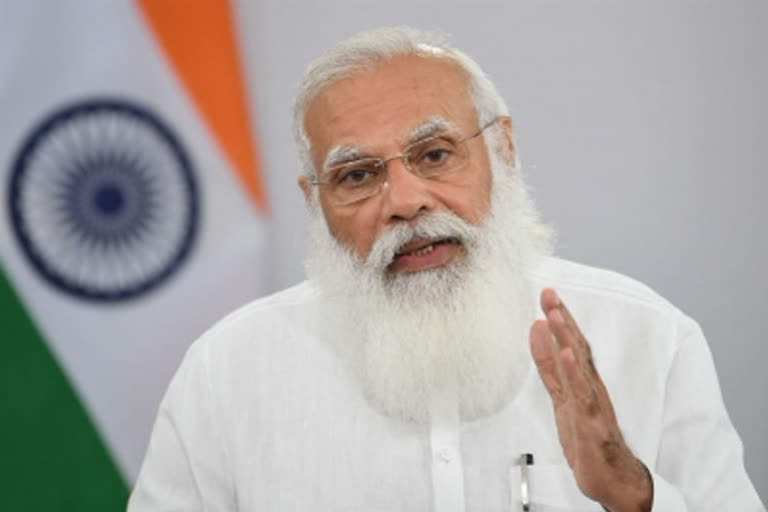New Delhi: Prime Minister Narendra Modi chaired a UN Security Council open debate on "Enhancing maritime security- A case for International Cooperation" on Monday evening via video conferencing. The Open Debate focussed on ways to effectively counter maritime crime and security and strengthening coordination in the maritime domain.
Addressing the high-level debate on maritime security, PM Modi put forth five basic principles including- Free maritime trade sans barriers to establish legitimate trade; Settlement of maritime disputes should be peaceful and based on international law only; responsible maritime connectivity should be encouraged; the need to collectively combat maritime threats posed by non-state actors and natural calamities. And last but not least preserve the maritime environment and maritime resources.
Modi also said that maritime routes are being misused for piracy and terrorism and that there is a need to remove barriers to maritime trade.
"Our prosperity depends on the active flow of maritime trade and barriers on this path can pose a challenge to the entire global economy, Free maritime trade is associated with the culture of India for time immemorial", Modi said at the Security council. Free and uninterrupted maritime trade is necessary for holistic development, the Prime Minister pointed out.
Prime Minister Narendra Modi is the first Indian Prime Minister to preside over a UN Security Council open debate.
Also read: Oceans are our shared heritage, PM reiterates at UNSC debate on maritime security
The Prime Minister further urged the present nations to collectively combat maritime threats posed by non-state actors and natural calamities. He also emphasized the need to preserve the maritime environment and maritime resources, adding that "oceans are shared heritage and our maritime routes are the lifelines of international trade. These oceans are very important for the future of our planet".
The meeting saw the participation by several Heads of State & Government of member states of the United Nations Security Council, and high-level briefers from the UN System and key Regional organizations. Russian President Vladamir Putin was also in attendance.
The UN Security Council has discussed and passed resolutions on different aspects of maritime security and maritime crime.
However, this was the first time that maritime security has been discussed holistically as an exclusive agenda item in such a high-level open debate. Given that no country alone can address the diverse aspects of maritime security, it is important to consider this subject holistically in the United Nations Security Council.
A comprehensive approach to Maritime Security should protect and support legitimate maritime activities while countering traditional and non-traditional threats in the maritime domain.
The Oceans have played an important part in India’s history right from the time of the Indus Valley Civilization. Based on our civilizational ethos that sees the seas as an enabler of shared peace and prosperity, Prime Minister Shri Narendra Modi put forward the vision of SAGAR - an acronym for ‘Security and Growth for all in the Region’ in 2015.
Also read: PM Modi condemns 'ghastly attack' on St Vincent and the Grenadines PM
This vision focuses on cooperative measures for sustainable use of the oceans and provides a framework for a safe, secure, and stable maritime domain in the region.
In 2019, at the East Asia Summit, this initiative was further elaborated through the Indo-Pacific Oceans’ Initiative (IPOI) with a focus on seven pillars of maritime security including Maritime Ecology; Maritime Resources; Capacity Building and Resource Sharing; Disaster Risk Reduction and Management; Science, Technology and Academic Cooperation; and Trade Connectivity and Maritime Transport, the MEA had said.
On Sunday, 1st August, India assumed the presidency of the UNSC. India took over the Presidency from France and this is India's first presidency during its 2021-22 tenure as a non-permanent member of the UNSC.



